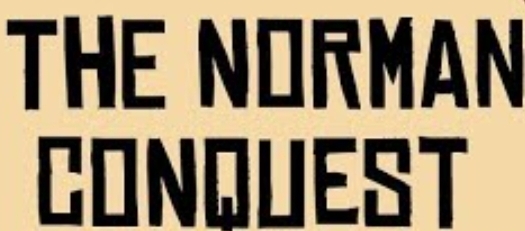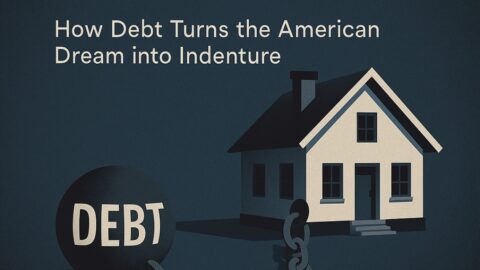Authors note: The Norman conquest was not just a political takeover but a cultural transformation that left an enduring mark on English society similar to the Left & Deep State on Christian America.
The Norman Conquest refers to the invasion and subsequent domination of England by the Normans, a group originally descended from Vikings who had settled in northern France. The conquest began in 1066, when William the Conqueror (Duke of Normandy) defeated King Harold II at the Battle of Hastings. This event dramatically reshaped England’s political landscape, culture, language, and architecture.
Who Were the Normans?
The Normans were originally Viking raiders who settled in the region of Normandy in France during the 9th and 10th centuries. Under the leadership of Rollo, a Viking chief, the Normans were granted lands by the French king Charles the Simple in exchange for their loyalty and their commitment to defend the realm from other Viking invasions. Over time, the Normans adopted French language, culture, and Christianity, transforming from raiders into a feudal society with strong ties to the church and a warrior ethos.
The Norman Conquest of England:
The conquest began when the childless Anglo-Saxon king Edward the Confessor died in January 1066, sparking a succession crisis. Edward’s brother-in-law, Harold Godwinson, claimed the throne, but William, Duke of Normandy, asserted that Edward had previously promised him the crown. To solidify his claim, William gathered a powerful force and invaded England. After defeating Harold’s forces at the Battle of Hastings in October 1066, William was crowned king on Christmas Day that same year.
Cultural Impact:
After the conquest, the Normans introduced:
Feudalism: They replaced Anglo-Saxon lords with Norman nobility, establishing a strict feudal hierarchy.
French Influence: French (Norman) became the language of the court, law, and administration, profoundly influencing the development of the English language.
The Charge of Hypocrisy:
The Normans might be considered hypocrites for several reasons:
Warfare: While they presented themselves as Christian rulers defending the faith, their methods often involved brutal conquest, forced conversions, and suppression of local traditions. This contrasts with Christian teachings about compassion and peace (Christian In Name Only).
Promoting Loyalty, Yet Displacing Rulers: The Normans emphasized loyalty to their liege, but their takeover involved the displacement and subjugation of Anglo-Saxon nobility, disrupting the existing political order (Tyrants Weapons: Destroy History, Tradition, Family and Culture).
Justification through Divine Right: William claimed that his conquest was divinely sanctioned, yet it relied heavily on military force and political manipulation.
The Norman conquest was not just a political takeover but a cultural transformation that left an enduring mark on English society. Their portrayal as both Christian defenders and conquerors illustrates the complex legacy of a society that straddled competing values of loyalty, faith, and military prowess.
- Culture War: Loyalists vs Revolutionaries
- Culture War: Loyalists vs Revolutionaries (Self-Anointed and Woke) (part 2)
- Culture War – Are Women and Children Targets of Advertisers as the product?
- Culture War – Honoring our Father’s this Father’s Day
- The Liberal Media Industrial Complex
The comparison between the Norman Conquest and the Deep State, focuses on the commonality of the “end justifies the means” approach in both cases.
The Norman Conquest:
Context and Justification: The Norman Conquest was primarily about gaining political control over England. William the Conqueror justified his claim to the English throne through a promise from King Edward and support from the Pope, yet his actual conquest relied heavily on military force and the strategic establishment of a new ruling class. The Normans reshaped the structure of English society, imposing feudalism, seizing lands, and replacing Anglo-Saxon elites with Norman ones. They saw their success as evidence of divine favor, but in practice, achieving and consolidating power was their priority.
Pragmatism in Action: In the case of the Normans, practical objectives (control and loyalty to the crown) justified the upheaval, displacement, and subjugation of the local population. The Normans rationalized their actions as legitimate under their right to rule and impose order.
The Deep State:
Power and Control: The Deep State is a term used to describe an alleged group of bureaucratic elites or non-elected officials who maintain control over government functions, independent of changes in political leadership. It operates behind the scenes to steer policies and decision-making processes according to its own goals, which are often criticized as undemocratic or self-serving.
Pragmatism Over Ideology: Critics of the Deep State suggest that it often operates with a focus on maintaining stability, control, and continuity of influence rather than adhering strictly to democratic processes or elected officials’ mandates. This perspective mirrors a belief that “the end justifies the means,” where maintaining state security, institutional power, or certain political interests becomes more important than transparency and accountability.
Commonalities:
Centralization of Power: Both the Normans and the Deep State involve consolidating and maintaining power in the hands of a select group—Normans through military conquest and establishment of a new elite, and the Deep State through bureaucratic influence and resistance to political shifts.
Pragmatic Tactics: The Normans used force and strategic marriages to establish dominance, prioritizing control and stability. Similarly, the alleged Deep State emphasizes practical control over state functions, sometimes overriding public or political sentiment.
Exclusion of Broader Consent: In both cases, the populace had limited say in the changes affecting their lives. The Normans imposed a new aristocracy, while the Deep State is accused of shielding decisions from public scrutiny, which some view as undermining democratic principles.
In essence, both can be seen as examples of a ruling class or elite prioritizing power and stability, with the means justified by the end goal of consolidation and control, irrespective of public opinion or traditional structures.
The term hypocrite finds its roots in the Greek word hypokrites, which referred to an actor or stage player. By the time the word entered Old French as ipocrite, and later Middle English in the 13th century, it had taken on its more familiar moral implication—a person who pretends to have virtues, beliefs, or qualities they do not possess.
Why Was the Term Introduced in Norman England?
After the Norman Conquest of 1066, Norman rulers introduced the French language and culture into England, significantly influencing its lexicon. During this period, many French-derived words entered the English language, including terms related to society, government, law, and religion. The Normans brought not just a military conquest, but also cultural dominance, which led to a blending of languages and a reshaping of English society and its vocabulary.
The word hypocrite was introduced around this time due to the Norman influence on the language and was likely used to describe individuals who were seen as insincere or deceitful. Given the dramatic societal changes and cultural impositions, the period following the Norman invasion was characterized by complex power dynamics and shifts in social roles.
Who Were “Pretending or Playing a Role”?
The Norman rulers were often seen by the Anglo-Saxon population as foreign overlords imposing their will and culture on England. This imposition created a gap between the rulers and the ruled, and the rulers’ claims of legitimacy and justice may have been perceived as hypocrisy by the subjugated populace. Here’s why:
Norman Nobility and their Actions: The Norman elite claimed to be rightful rulers under a divine mandate and the laws of chivalry. However, their actions—such as land confiscations, heavy taxation, and subjugation of the Anglo-Saxon elite—could have contrasted sharply with their self-image as righteous Christian rulers. Such a contrast between their proclaimed ideals and their actions might have led to accusations of hypocrisy.
Imposed Religion and Social Role: The Norman rulers tied their authority to religious legitimacy, aligning with the church and claiming that their rule was divinely ordained. Yet, the brutal suppression of revolts, the displacement of Anglo-Saxon lords, and imposition of foreign customs created a reality at odds with their religious declarations. The clergy, which now included many Norman or French-speaking leaders, could also be seen as playing a role, acting piously while enjoying the privileges and wealth of their position.
The Evolving Power Structures: After the Norman Conquest, England witnessed the imposition of feudalism, a system that emphasized loyalty and hierarchy. Those who adapted to the new system, including some Anglo-Saxon elites who collaborated with Norman rulers, could have been accused of hypocrisy for abandoning their previous allegiances or ideals to maintain status.
The introduction of the term hypocrite into Norman England likely reflected a growing awareness of the discrepancy between public personas and private actions among the ruling elites. The Norman Conquest introduced a ruling class that often claimed religious and moral authority, while imposing new laws and structures that disrupted and disadvantaged the Anglo-Saxon populace. This dissonance—between what was preached and what was practiced—could explain why the term hypocrite became relevant in post-conquest England.







